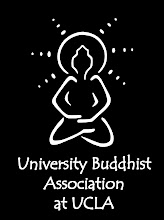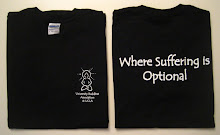Hi UBA friends,
Here are some details on the event that was mentioned this week at our meditation meeting. It looks like an interesting chance to check out some of the different faiths and traditions that UCLA has to offer, including a tour of some of the actual facilities offering different religious services, so many of you may want to check it out. Rev. Kusala will be among those giving presentations towards the beginning of the event.
****
Inter-religious Open HouseWhen: Saturday, January 31, 2009
Time: 11:00am - 2:30pm
Location: UCLA Campus (meeting at the University Catholic Center, 633 Gayley Ave)
What: a tour of four houses of worship/meditation at UCLA, with short presentations from other religious groups
Goal:
- to educate ourselves of the commonalities and rich diversity among different religions
- to celebrate together the richness and diversity of organized spirituality here at UCLA
Houses of worship to be visited (in order):
University Catholic Center
University Lutheran Chapel
Hillel
St. Alban's Episcopal Church
Other religious groups participating:
Univ. Buddhist Assoc., MTO Suffi Assoc., Wesley Foundation, Hindu Student Council, and the Univ. Presbyterian Church.
Worried about lunch? Well Don't!
We will be starting with a FREE Continental Breakfast and ending with a FREE Lunch (we'll be taking into consideration the dietary needs of all participating religious groups)
This is really a great opportunity to meet new people from many different backgrounds, build relations with other groups on campus, and get a glimpse of just a few religious groups at UCLA (not to mention, getting a free bite to eat)!
***As a side note, for those of you on Facebook, it might be helpful to search for the event (by the name "inter-religious open house") and RSVP to it, just to give the organizers a better idea of how much food to buy.






